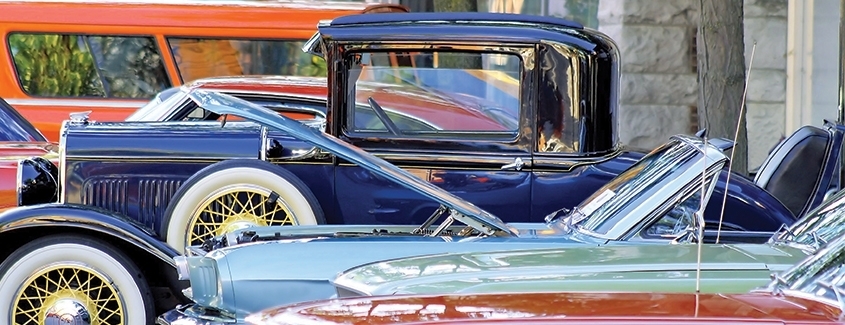Collector cars aren’t used like typical vehicles. They’re often driven less and cared for better. They don’t commute to work, but they spend weekends parked at car shows. You need a collector car auto insurance policy that meets those specific needs.
Many collectors in the United States make the mistake of insuring their collector vehicles through big-name insurance companies. This costs them more and fails to provide adequate coverage. Specialty insurance policies provide significant advantages for collector cars.
Your collector car isn’t like the standard models
When you sign up for traditional insurance, you select a few options from basic categories like make, model, and condition. But that doesn’t tell the whole story of a collector car.
Collector vehicles (and exotic cars) are tricky to value. They may have a list of improvements, modifications and custom parts. A specialty insurer has to ask about what’s been modified, how much has been invested, the parts that are used, etc. Keep detailed information and receipts so your insurer can put together the right policy for you.
Specialty coverage is usually less expensive
You don’t drive your collector vehicle every day. It probably sits in the garage for weeks at a time, only taken out for the occasional drive or car show. So you shouldn’t pay typical insurance rates.
Insurance for collector cars is often far cheaper than standard commuter insurance. For example, the price of a policy for a 60s Mustang (which includes physical damage, comprehensive and collision) may only cost a couple hundred dollars.
Furthermore, bulk pricing is available for collectors with large collections including instant coverage when you buy a new vehicle.
Designed for low mileage use
Most specialty collector insurance carriers will not restrict how many miles you can drive your car each year but they aren’t looking to insure classic cars that are driven daily. Average mileage for these cars is between 2000-3000 miles per year – including car shows and events. If you do drive your car daily, high net worth carriers such as Chubb will insure your vehicle but the cost will be reflective of the use.
Collector car insurance uses the Agreed Value
Automobile insurance comes in three varieties:
- Actual Cash Value: This is the depreciated book value that you would find in a source like Kelly Blue Book. Older cars with more miles and in poorer conditions are worth less. This is how a majority of cars are insured.
- Stated Value: This is for collectibles. The insurer allows you state the value of the car that’s greater than the depreciated value. But the car still can depreciate, so you might get less than you expect in a claim.
- Agreed Value: This type of insurance lets you state the vehicle’s value and guarantees you’ll get the full value of your policy in a claim. There’s no depreciation.
Collector cars are hard to price. They don’t have a clear market value. They also often appreciate in value. This means you always want to buy a policy that’s written with an Agreed Value so you’re paid accordingly should something happen. Coverage is also in effect for the full 12 months of the year, so there is no need to call and suspend coverage during the Winter months.
Don’t limit yourself to traditional insurance policies. Speak with us about insuring your collector or exotic car.
Mary McGrath
Personal Lines Manager
mmcgrath@srfm.com


